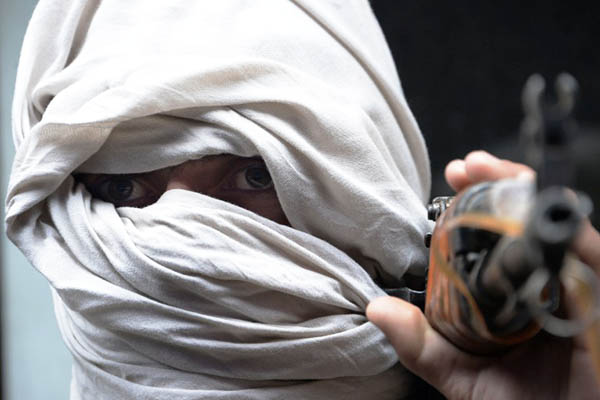
File Photo. Noorullah Shirzada—AFP
Thousands of Afghans forced to flee homes as fighting continues, with analysts warning Kabul could come under threat in as little as 30 more days
The Taliban on Thursday claimed to have captured the provincial capital of Herat, Afghanistan’s third largest city, after nearly two weeks of fighting, as well as second-largest city Kandahar.
“Kandahar is completely conquered,” read a posting on Twitter by a Taliban spokesman. “The mujahideen have reached Martyrs’ Square,” it added. News agency AFP said local residents had confirmed the development to its journalists, adding that government forces had reportedly withdrawn to a military facility located outside the city.
The latest losses have the Taliban controlling the bulk of Afghanistan. Over the past week alone, the insurgents have seized 10 other provincial capitals from the elected government in Kabul—bringing to 12 of 34 provincial capitals under their control—and now control over 67 percent of the nation’s territory.
The seizure of Herat brings the group ever closer to Kabul, with the Associated Press claiming this puts nearly all of the country’s western territory under the Taliban’s rule.
Thousands of Afghans have fled their homes amid fears the Taliban will again impose a brutal, repressive government, all but eliminating women’s rights and conducting public amputation, stoning and executions. Already, multiple reports have emerged of the Taliban publicly hanging “criminals” and anyone believed to have supported the government in the past. A U.S. military intelligence assessment has warned that Kabul could come under insurgent pressure within 30 days, and that—if the current trends continue—the Taliban could gain full control of the country within 90 days. In recent days, Kabul has been swamped by the displaced, who have begun camping out in parks and other public spaces, sparking a fresh humanitarian crisis in the already overtaxed capital.
Analysts have warned that the Afghan government might eventually be forced to pull back to defend the capital and just a few other cities in the coming days if the Taliban keep up their momentum.
Amidst the Taliban gains, Washington and London have moved to pull out their embassy staff and other citizens from the capital. “We are further reducing our civilian footprint in Kabul in light of the evolving security situation,” US State Department spokesman Ned Price told reporters, stressing that the embassy would remain open. “This is not abandonment. This is not an evacuation. This is not the wholesale withdrawal,” he said, adding Washington would also start sending in daily flights to evacuate Afghan interpreters and others who assisted the Americans and are fearful for their lives due to the Taliban’s offensive.
The Pentagon, meanwhile, has said 3,000 U.S. troops would be deployed to Kabul within the next 24 to 48 hours to provide security during the evacuation. Reportedly, the U.S. has also reached out to the Taliban to not target its embassy during their offensive.
Also on Thursday, Afghanistan’s interior ministry confirmed the fall of Ghazni, about 150 kilometers from Kabul and along the major highway to Kandahar and the Taliban heartlands in the south.
As the fighting continued, key international players on Afghanistan on Thursday wrapped up last-ditch efforts to secure a negotiated political settlement during talks in Qatar. In a joint statement, the international community, including the U.S., Pakistan, the E.U., and China, said they would not recognize any government in Afghanistan “imposed through the use of military force.”
Last April, President Joe Biden ordered the withdrawal of the 3,000 American troops remaining in the nation, pushing for a full removal by Aug. 31. In wake of the Taliban’s continued conquest, Biden urged the Afghan leadership to come together, stressing he had no regrets about his decision to withdraw all troops. “They’ve [Afghans] got to fight for themselves, fight for their nation,” he said.
